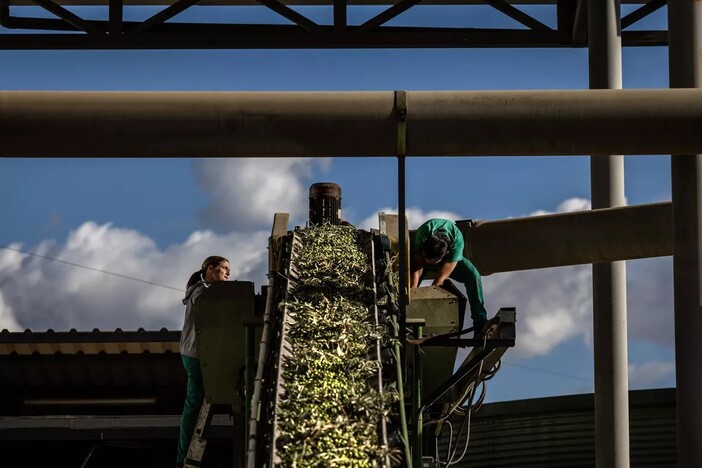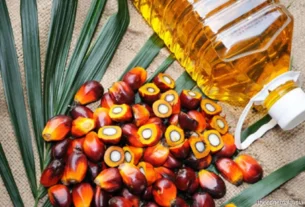As olive oil enthusiasts and culinary experts can attest, olive oil is more than just a kitchen staple—it’s an essential ingredient in Mediterranean cooking, a vital part of the health-conscious diet, and an important economic product for millions. However, in recent years, the olive oil market has faced a crisis marked by soaring prices and shrinking supplies. Fortunately, a silver lining has emerged as the top olive oil producer, Spain, is reporting a significant harvest surge, bringing hope to consumers and suppliers alike.
Background: Olive Oil Crisis and Its Global Impact
Over the past few years, the global olive oil industry has experienced an unprecedented supply shortage due to factors such as extreme weather, drought, and economic pressures in major producing regions. This has led to skyrocketing prices and increased concern about the long-term availability of olive oil. According to industry reports, global olive oil prices hit record highs in recent months, with some markets seeing prices double compared to previous years. The shortage has particularly impacted countries like Spain, Italy, and Greece, where olive oil production is central to both culture and economy.
The shortage affected not only consumers but also restaurants, food manufacturers, and small businesses that rely heavily on olive oil as a primary ingredient. Some companies were forced to reduce portion sizes or switch to other types of oils to manage costs, while consumers have been seeking more affordable alternatives or adjusting their consumption habits.
Spain’s Role in the Olive Oil Market
Spain is the world’s leading producer and exporter of olive oil, accounting for nearly 50% of global production. With vast olive groves spanning Andalusia, Castilla-La Mancha, and Catalonia, Spain’s contribution is indispensable to maintaining stable supplies and prices in the market. The Spanish olive oil industry is built upon centuries-old traditions, combining skilled labor with advanced farming techniques to ensure high-quality production. However, Spain’s olive sector has not been immune to recent challenges.
In 2022, Spain saw one of the lowest olive oil yields in decades, largely due to a combination of drought and extreme heat that affected olive trees’ ability to produce fruit. This led to a significant drop in Spain’s olive oil output, exacerbating the crisis and contributing to the price surge.
A Promising Harvest: Boost in Olive Oil Production
The latest news from Spain’s Ministry of Agriculture reveals a much-needed boost in olive oil production for the current season. After several challenging years, favorable weather conditions, including much-needed rainfall and moderate temperatures, have allowed olive trees to produce a plentiful harvest. As a result, analysts predict an increase in Spain’s olive oil output by as much as 25% compared to the previous year, potentially easing the global supply shortage.
Industry experts note that the current harvest surge could help stabilize olive oil prices and alleviate pressure on supply chains. With Spain producing more than half of the world’s olive oil, this harvest boom will likely have a ripple effect across international markets, giving retailers and consumers alike a reprieve from record-high prices.
Key Factors Behind the Harvest Surge
Several factors have contributed to Spain’s improved olive oil yield this year:
- Improved Weather Conditions: After prolonged droughts and extreme heat waves, Spain experienced favorable weather conditions, including rainfall that nourished olive trees. These climatic improvements have created ideal conditions for a more productive harvest.
- Advanced Farming Techniques: Spanish olive oil producers are employing innovative farming techniques to maximize yield, such as drip irrigation and precision farming, which help optimize water use and manage crop health. This technological edge has enabled Spain to increase productivity even in challenging environments.
- Government Support and Investment: Spain’s government has been actively supporting its agriculture sector with subsidies and incentives, encouraging sustainable farming practices that enhance resilience against climate fluctuations. These initiatives have played a role in supporting the olive oil industry during tough times.
Economic and Market Implications
The anticipated boost in Spanish olive oil production is expected to bring a welcome dip in prices, particularly in Europe, where olive oil is a fundamental ingredient in daily cooking. Global markets are also likely to see the effects, as Spain exports a substantial portion of its olive oil output to countries around the world. This anticipated price drop could encourage consumers to return to olive oil or increase their consumption after months of rationing.
Some analysts are cautious, however, noting that while the current harvest is promising, it may take time for the price relief to be fully realized across retail shelves. Additionally, other factors, such as rising production costs and ongoing climate challenges, may continue to put pressure on the industry.
Environmental and Sustainability Challenges
While Spain’s successful harvest brings relief to the olive oil industry, climate experts caution that the ongoing environmental challenges facing agriculture cannot be overlooked. Olive oil production remains vulnerable to unpredictable weather patterns, particularly as climate change intensifies the frequency and severity of droughts, heatwaves, and other extreme weather events. Addressing these issues is critical to ensuring the long-term sustainability of the olive oil supply.
Spain and other major olive-producing countries are investing in sustainable agricultural practices to protect their olive groves and mitigate environmental impacts. Initiatives include promoting drought-resistant olive varieties, reducing water usage, and encouraging regenerative farming practices to protect soil health. As the industry faces an uncertain future, these sustainable practices are essential to protect the livelihoods of millions and ensure a steady supply of olive oil for generations to come.
The Road Ahead: What Consumers Can Expect
For consumers, the easing of the olive oil crisis is undoubtedly positive news. However, experts advise that olive oil prices may not return to pre-crisis levels immediately. Instead, prices are likely to stabilize gradually as the increased production translates into more affordable options at retail outlets. Consumers may start noticing slight decreases in olive oil prices over the coming months, particularly in European markets where olive oil is a staple.
The recent crisis has also heightened consumer awareness about the sourcing and quality of olive oil. Many consumers are now prioritizing certified extra virgin olive oil to ensure they are purchasing high-quality, authentic products. This shift towards quality and authenticity could shape the future of the industry, prompting producers to focus on transparency and quality control.
A Boost for the Mediterranean Diet and Culinary World
The news of Spain’s harvest surge is particularly welcome for proponents of the Mediterranean diet, which relies heavily on olive oil as a source of healthy fats. Widely praised for its health benefits, including heart health, weight management, and anti-inflammatory properties, the Mediterranean diet has gained popularity worldwide. As olive oil becomes more accessible, more people will be able to incorporate it into their diets, supporting both culinary diversity and healthier eating habits.
Chefs, restaurants, and food manufacturers who had been struggling with rising costs can also breathe a sigh of relief. The reduced pressure on olive oil supply chains allows them to maintain the quality and authenticity of their dishes, which depend heavily on high-quality olive oil. From gourmet restaurants to home kitchens, the resurgence of olive oil supplies will support the culinary community at large.
Looking Forward: A Sustainable Future for Olive Oil
While Spain’s improved harvest is an encouraging development, the olive oil industry must continue to focus on sustainability to remain resilient in the face of future challenges. With climate change posing a significant threat, investment in sustainable farming practices, drought-resistant crops, and environmentally friendly technologies is essential.
The easing of the olive oil crisis is a moment of relief, but it also serves as a reminder of the industry’s vulnerability to external factors. By promoting sustainable agriculture and addressing environmental concerns, the olive oil industry can build a stronger foundation for future generations.
Final Thoughts: A Time to Appreciate Olive Oil
For now, olive oil lovers worldwide can take comfort in the fact that prices are likely to stabilize, and supply chains will recover as Spain’s harvest surge makes its way to markets. This turn of events underscores the importance of preserving and supporting traditional farming practices and sustainable agriculture to ensure the availability of such an important resource.
As we move forward, let’s celebrate the resilience of the olive oil industry, recognize the efforts of Spanish farmers, and continue to value olive oil for its culinary, cultural, and health benefits. With responsible practices, this cherished ingredient can remain a staple in kitchens and on tables around the world for years to come.





